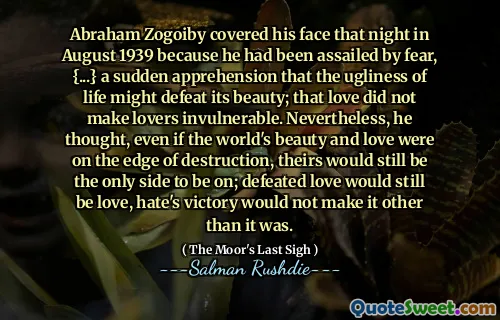If a birth is the fall-out from the explosion caused by the union of two unstable elements, then perhaps a half-life is all we can expect.
In Salman Rushdie's "The Moor's Last Sigh," the quote reflects on the nature of existence and the complexities of life. It suggests that the arrival of a new life, symbolized by birth, can be seen as a chaotic aftermath of two unpredictable forces coming together. This metaphor highlights the unpredictability that often accompanies creation and relationships and implies that life itself is marked by instability and uncertainty.
The mention of a "half-life" conveys that the duration of what follows—whether joy, conflict, or love—may be limited, suggesting that nothing is permanent. This perspective encourages a deeper contemplation of our experiences and the fleeting nature of life, as well as the potential consequences of our connections with others. In essence, Rushdie invites readers to reflect on the balance between creation and the inevitable decline that follows.






